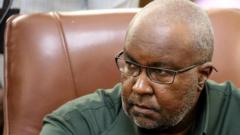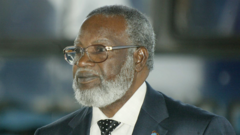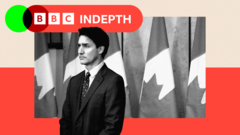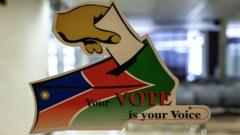In her inaugural state of the nation address, Namibia's president revealed plans to phase out university fees by 2026. While the initiative garnered both welcome and skepticism, details on funding and eligibility remain unclear.
Namibia to Eliminate University Fees by 2026: A Bold Move or Feasible Endeavor?
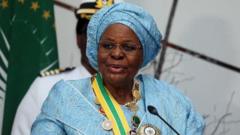
Namibia to Eliminate University Fees by 2026: A Bold Move or Feasible Endeavor?
President Netumbo Nandi-Ndaitwah announces plans for free higher education, but questions about funding and implementation arise.
Namibia is set to make significant changes to its higher education system as President Netumbo Nandi-Ndaitwah unveiled a plan to eliminate university fees by 2026. This major announcement came during her first state of the nation address on Thursday, marking a pivotal moment for the country’s educational landscape.
Nandi-Ndaitwah, who is the first female president of Namibia, asserted that public universities and technical colleges will no longer charge students any registration or tuition fees. However, she clarified that families and students would still need to cover accommodation and other related costs. Despite this ambitious undertaking, the president emphasized that additional funding for the initiative would be minimal, raising concerns about financial sustainability.
“We have heard your cries: 'the Fees have Fallen,'” she declared, referencing previous protests by university students in both Namibia and South Africa. The announcement attempts to respond to long-standing demands for accessible education, a sentiment that echoes previous movements like South Africa’s #FeesMustFall.
While Nandi-Ndaitwah assured that the funds for this initiative would derive from existing subsidies for public universities and the student financial assistance fund, critics have noted the ambiguity surrounding the practicality of her plans. The Affirmative Repositioning Student Command (ARSC) voiced its skepticism, suggesting that the announcement lacks a clear strategy and raises significant questions regarding which students would benefit.
Analysts have also weighed in, with economist Tannen Groenewald highlighting the risks of capping student enrollments if fees are removed without adequate financial resources. Furthermore, concerns were raised that the program could inadvertently mirror South Africa's experience, where only a small fraction of students reaped the benefits of a similar initiative.
Currently, basic education is free in Namibia's public schools, but the effectiveness of this new university initiative will depend on more than just the abolition of fees. As stakeholders await further clarity, the country’s efforts to provide an equitable education could face greater scrutiny as implementation approaches.






